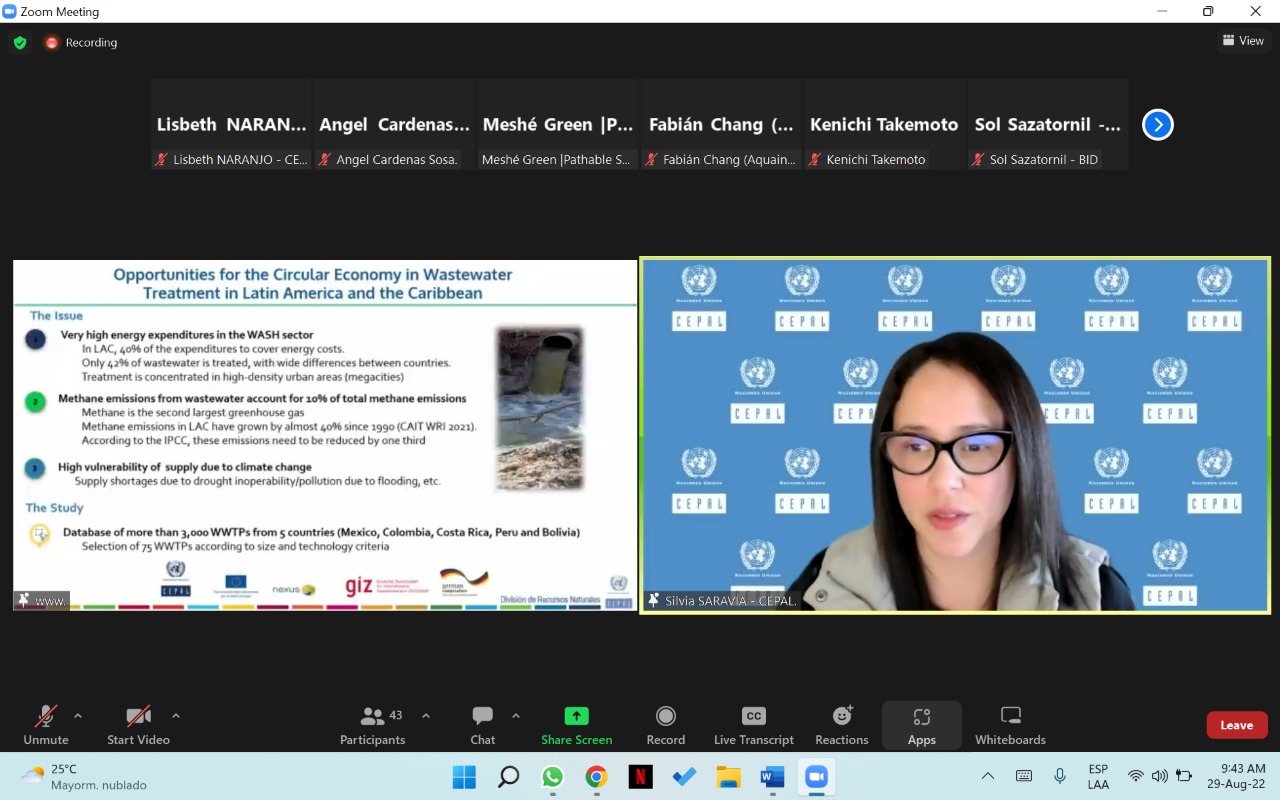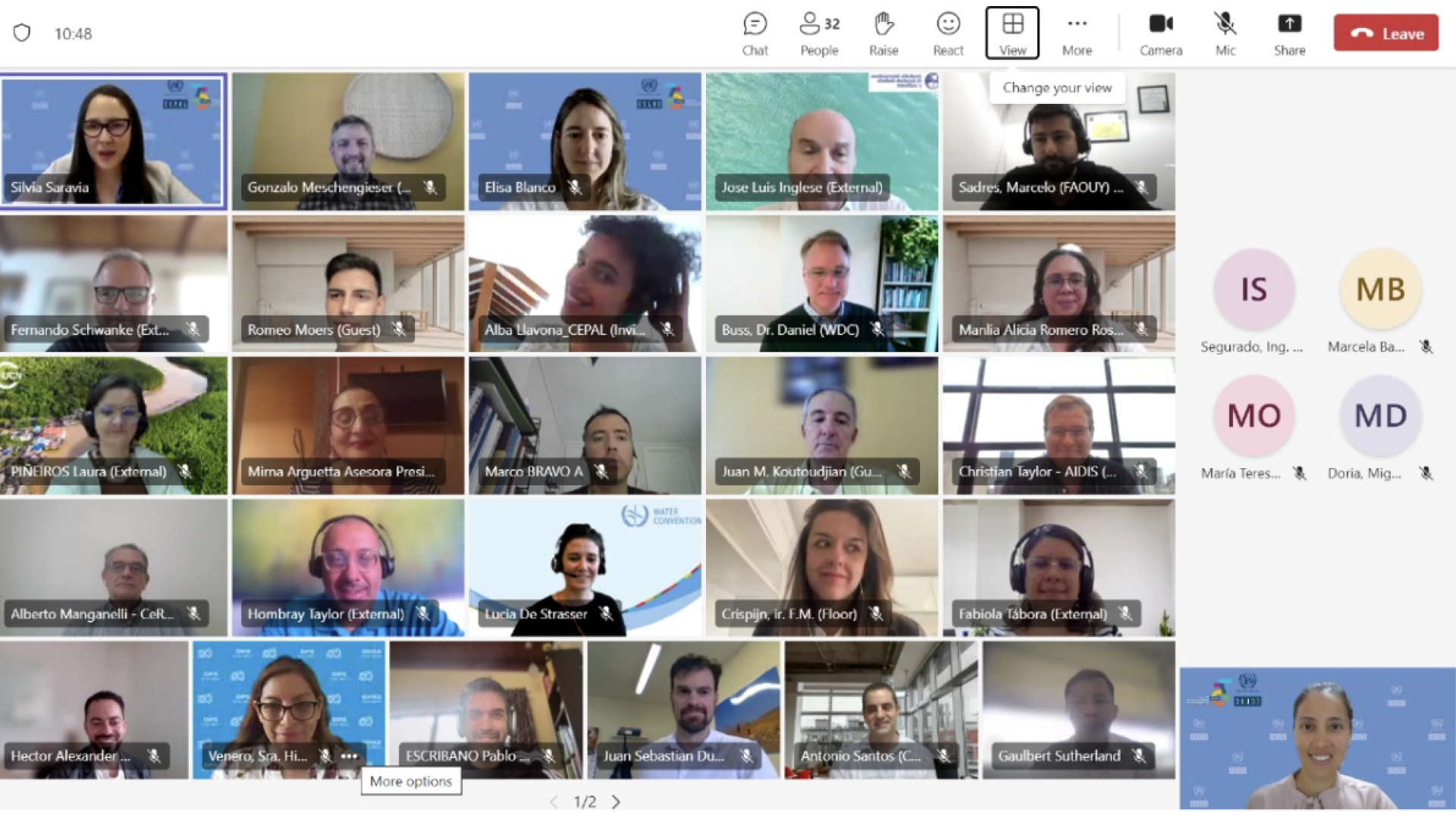Briefing note
ECLAC's Natural Resources Division co-organized the session "Investing in the Future: A Paradigm Shift in Latin America and the Caribbean" at the World Water Week 2022 in Stockholm
The World Water Week 2022, organized between August 23 and September 1 by the Stockholm International Water Institute, is the world's leading conference on water issues. The Week attracts a diverse mix of participants from many professional backgrounds and all corners of the world.
ECLAC, through the Water and Energy Unit of the Natural Resources Division, acted as co-organizer in the session of Monday 29th "Investing in the future: A Paradigm Shift in Latin America and the Caribbean" together with representatives of several international organizations, development banks, cooperation agencies and water and sanitation service providers in the region, including the Inter-American Development Bank (IDB), the Development Bank of Latin America - CAF, Argentine Wash and Sanitation (AySA), the German Society for International Cooperation (GIZ), Water Equity, International Water and Sanitation Centre (IRC) Wash, and the World Bank. The session was moderated by Monica Altamirano from NOW Partners.
ECLAC considers that one of the main challenges is to generate evidence on the reasons why investments should be made in the drinking water and sanitation sector, and on how these investments should be made, considering economic, social and environmental aspects. In this direction, ECLAC's intervention led by the Unit's Economic Affairs Officer, Silvia Saravia Matus, was aimed at highlighting opportunities for bankable and sustainable projects in the region.
Saravia Matus presented the study "Opportunities for the circular economy in wastewater treatment in Latin America and the Caribbean". This study conducted by ECLAC on 75 wastewater treatment plants in 5 countries of the region (Mexico, Colombia, Costa Rica, Peru and the Plurinational State of Bolivia) shows the technical and financial feasibility of implementing wastewater treatment projects with a circular approach. Specifically, Silvia highlighted that investing in circular water treatment systems and recovering methane for energy generation and self-consumption has a positive cost-benefit ratio, as it reduces plant operating costs by approximately 40% and reduces methane emissions by 86%, with a positive cost-benefit ratio per equivalent person of US$1.36 over a 20-year horizon.
During the rest of the session, innovative financing mechanisms in the water sector were shared and the enabling environment necessary for the implementation of "the next generation" of projects in LAC was analyzed. Thus, following ECLAC's intervention, representatives from Saguapac (Santa Cruz de la Sierra, Bolivia), BANOBRAS (Mexico), Igua (Brazil) and Veolia (Morocco) shared innovative experiences in water security, financing, nature-based solutions and other relevant information to ensure the protection of vulnerable groups and overcome water and sanitation challenges throughout the region.



